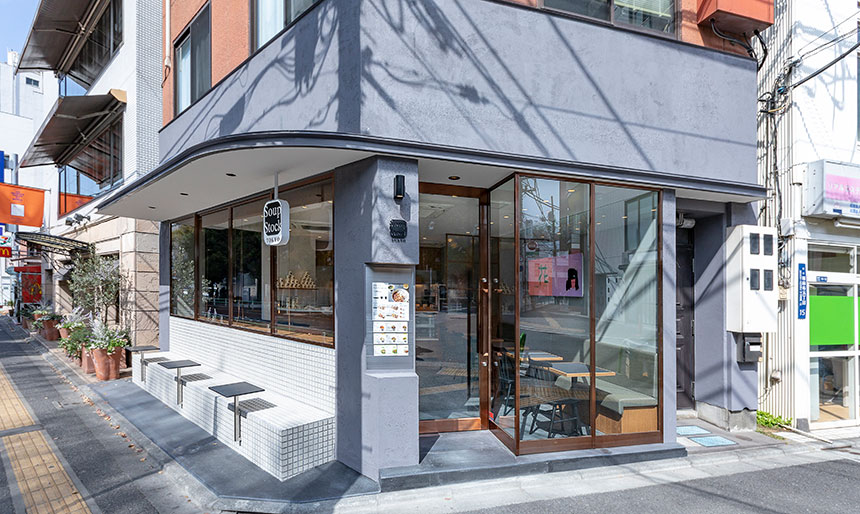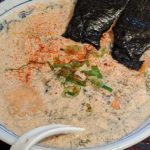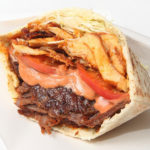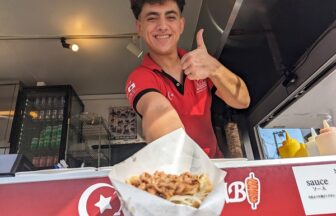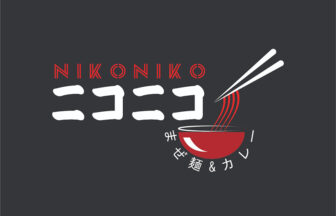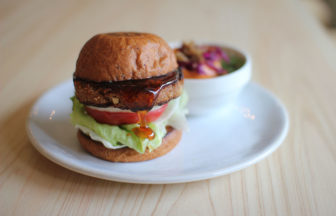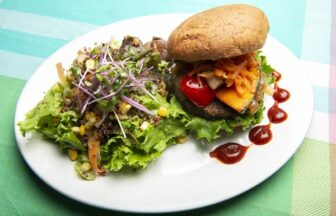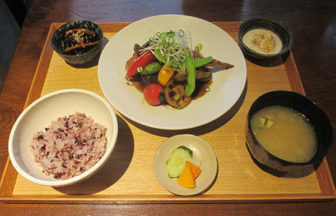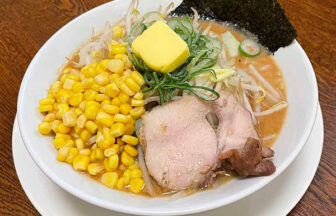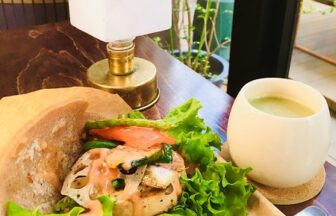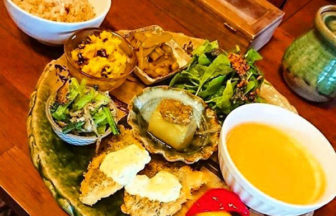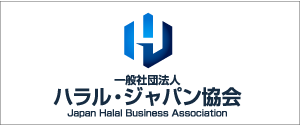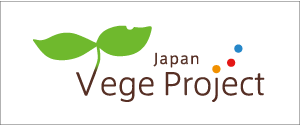“Chicken Rendang” Halal menu is now available @Soup Stock Tokyo
Each store has a menu that changes weekly and seasonally. It is popular with people of all ages. And recently, Halal menu “Chicken Rendang” has appeared in such soup stock Tokyo. This is a menu based on Indonesian local cuisine “Rendang” with Japanese essences such as pickled plums and soy sauce.
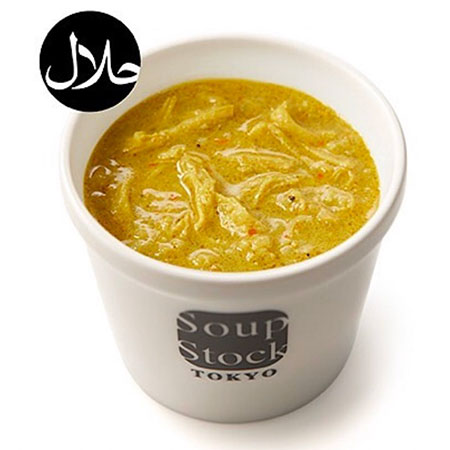
Chicken Rendang *Photo provided by Soup Stock Tokyo

Whole grain bread *Photo provided by Soup Stock Tokyo
“Chicken Rendang” is processed in a halal certified factory. It is made under strict control. The store kitchen is not a halal-only kitchen, but cooking utensils such as ladles and pots are halal-cirtified. And although it is usually served in pottery tableware, it can be changed to a disposable container by issuing a card that says “For Muslims.”
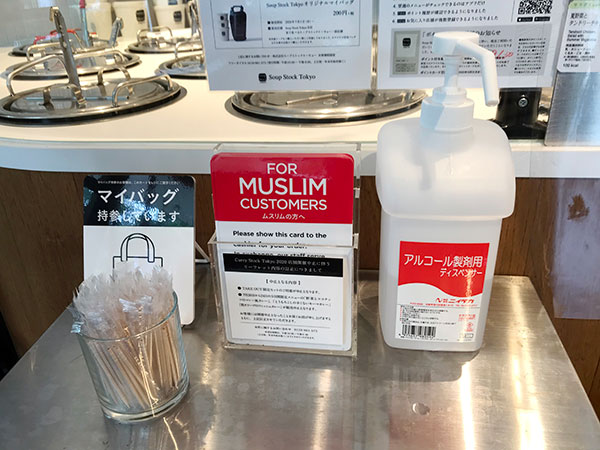
FOR MUSLIM COSTOMERS card
A red band with the word halal is wrapped around the disposable container, and when you read the QR code on the back, you can check the halal policy.
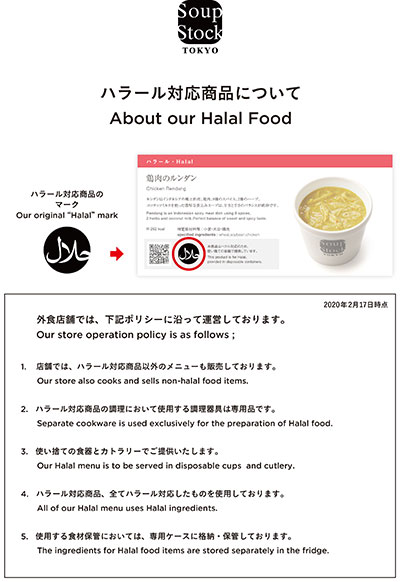
Muslim support policy “About halal products”
There are various other ideas so that Muslims can eat with peace of mind.
If you read the QR code that comes with this tray, you can read the story of how halal soup is made (The story is written in English).
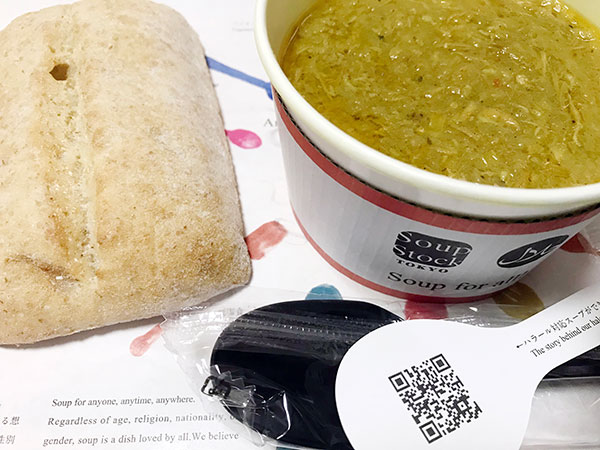
Disposable container for “Chicken Rendang” and QR code
Actually, this menu called “Chicken Rendang” is a soup born from the regret of one employee who thought of his colleagues.
Soup Stock Tokyo’s motto is “Soup for all!”. Which comes from an idea that all soups should be enjoyed by everyone regardless of nationality, gender, age, or religion. This ideology is also reflected in the harmonious and gentle seasoning.
Soup Stock Tokyo-style soups and curries inspired by dishes from around the world all have a nostalgic taste that suits the tastes of Japanese people. So, for the all menu, you can enjoy somewhat Japanese-style soupes. In addition, the QR code is written on the menu, so you can check the ingredients and allergies.
Please come and enjoy the attitude of maximizing the consideration that Soup Stock Tokyo can do.
The vegetarian menu does not use any “animal ingredients”, “honey”, or “sugar”.
The concept of “Soup for all!”, which Soup Stock Tokyo has always cherished since its inception, includes the meaning of providing soup that everyone can eat. As the name suggests, they are promoting the development of menus for each person from 0 to 100 years old, regardless of age or nationality.
The menus handled by each store are different, but they always support a wide range of lifestyles such as baby food, long-term care food, allergies, religious support such as halal, and vegetarian food.
The standard for vegetarian menus is vegan, which does not use “animal ingredients”, “honey”, or “sugar”. Although it is not certified by an external organization, it does not use “animal ingredients (beef, chicken, pork, other meat, seafood, eggs, dairy products)”, so it can be used by a wide variety of vegetarian customers.
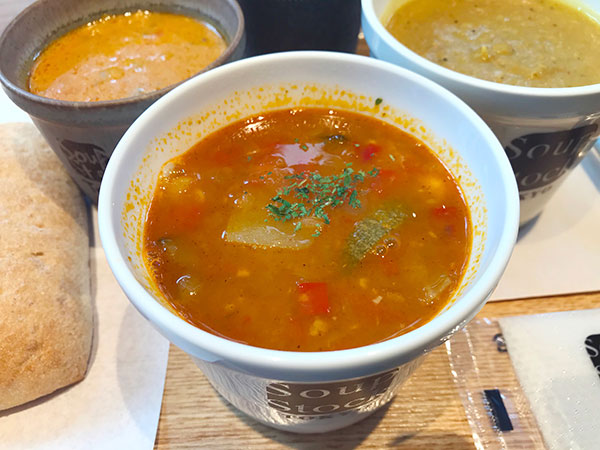
Chili beans soup with corn and paprika
This is a chili bean soup with corn and paprika. It has a slightly spicy tomato-based taste with plenty of vegetables, beans, and two types of jalapeno. It contains jalapeno, but I did not feel the spiciness too much. The root kelp soup stock brings out the flavor of the vegetables and is very easy to eat.
Soup Stock Tokyo is one of the few soup specialty stores in Japan that thoroughly discloses information about each menu. It is no exaggeration to say that it is at the forefront of food diversity in Japan, which combines deliciousness, ease of use, ease of eating, and food safety.
There are also to-go(take-out) menus, regular purchases, and online shops, so please use them according to theneeds and scenes.
Supervisor / Recommender

- Halal Supervisor and Foreigner Food Coordinator (Cooking, Consulting, Public Relations)
-
Click here for introduction
I currently work as an editor, but my previous job was as a chef, with many years of experience working in hospitals, restaurants, and the food service industry. Looking back, I think my connection to halal may have already been there.
Decades ago, I once worked in a cafeteria at an auction venue. Over 60% of the visitors were foreigners. Many Muslims were present, and the venue had a mosque-like prayer space. I remember being frequently asked questions about whether the meat was halal and what kind of meat it was. At certain times, the cafeteria would become as lively as a festival. The Indian restaurant next door would generously serve free biryani, curry, and sweet drinks to everyone who came. Over 100 people, including people wearing bright red turbans, galabeyas, and traditional attire, gathered in the cafeteria, all sitting around the same table and enjoying a truly enjoyable time. Looking back, it was iftar, the end of fasting, and I understand the significance of sharing, but at the time I was ignorant of halal and Islam, and didn't even consider how to respond. They only ate the curry made by the Indians in the restaurant. As I studied halal, I realized, "I wanted to eat Japanese food, but I couldn't." I regret not doing anything even though there was something I could have done.
If only it didn't contain pork! If only it didn't contain wheat or buckwheat! I could eat it... Food insecurity is different for each person.
That's why I think it's important to learn about the differences in culture, religion, and lifestyle that underlie it, and to create an environment where everyone can enjoy delicious meals in comfort.
The desire for delicious, safe, and secure food is universal. The times are calling for people to live in new ways that transcend borders and religions. I hope that halal can be a gateway to eliminating food insecurity, contributing even in some small way to a society where people can coexist and prosper with more liberal thinking, and to global harmony beyond.
Latest entries
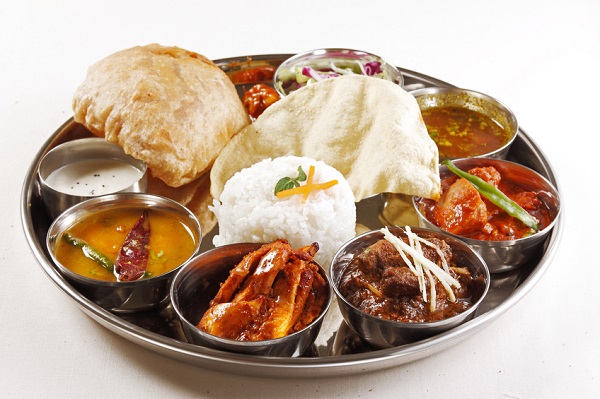 Tokyo2023年11月4日Dakshin South Indian Restaurant Otemachi Branch
Tokyo2023年11月4日Dakshin South Indian Restaurant Otemachi Branch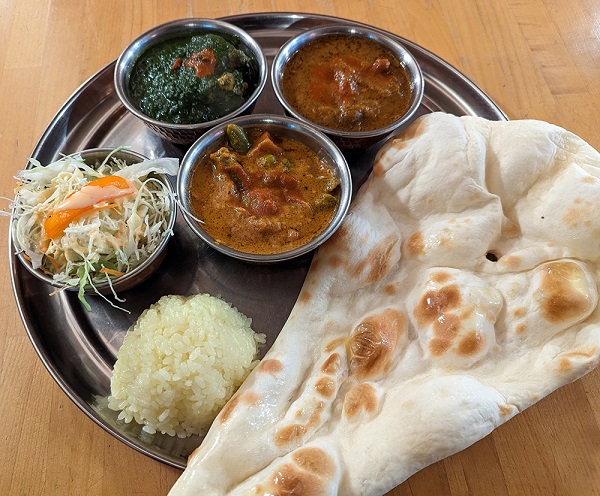 Tokyo2023年10月23日Gandhi Mahal
Tokyo2023年10月23日Gandhi Mahal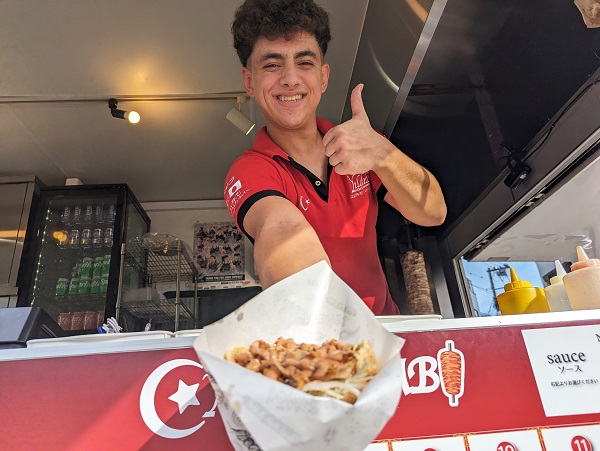 Tokyo2023年10月23日Yıldız KEBAB
Tokyo2023年10月23日Yıldız KEBAB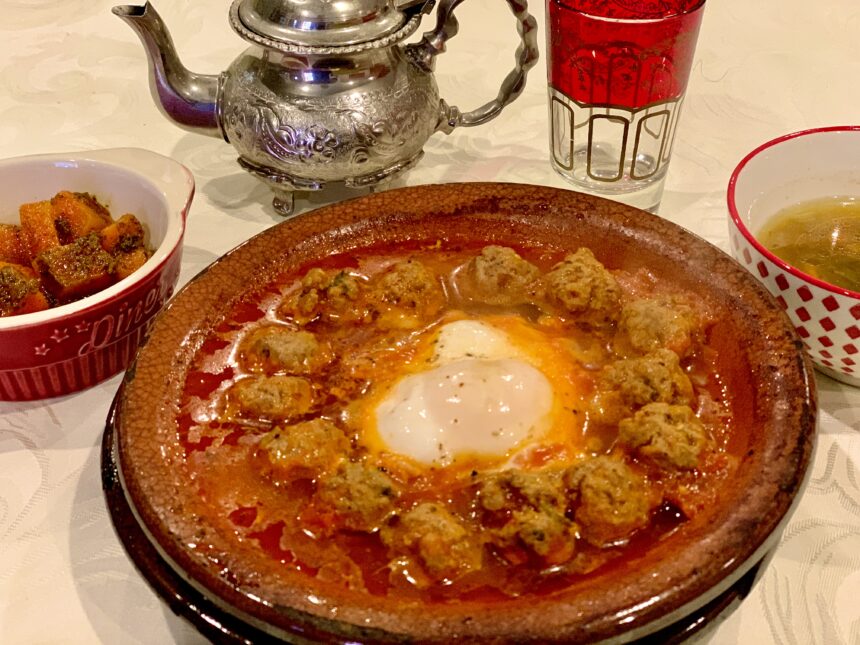 Tokyo2023年10月4日Restaurant Morocco
Tokyo2023年10月4日Restaurant Morocco

